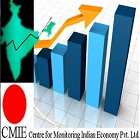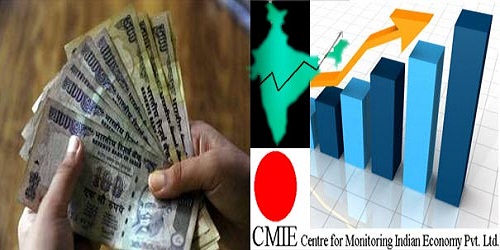FW
Invista, co-sponsor of the Kingpins denim show to be held on July 21 and 22, in New York, will be showcasing the latest Lycra Beauty branded shaping fabrics from around the world. In addition, the company will feature the latest performance offerings with Coolmax and Thermolite fabrics, as well as new options for the boyfriend jean using lastingFIT technology by Lycra brand.
Jeans made with lastingFIT technology by Lycra provide a stylish and comfortable option for the latest boyfriend silhouettes without the bag and sag. Response to the Lycra Beauty branded platform has been excellent according to Jean Hegedus, Invista’s Global Business Director for denim. Hegedus says they have 200 certified Lycra Beauty branded denim fabrics and the first garments will appear at retail later this fall.
To provide further information about how Lycra Beauty fabrics work, Hegedus will be part of the ‘Denim Makes the Shape’ panel along with other panelists including Panos Sofianos of Tejidos Royo and Jack Matthews of ADM Denim. Both of these companies have developed a variety of high quality Lycra Beauty denim fabrics which will be on display at Kingpins.
www.kingpinsshow.com
Welspun India has reported a 55.42 per cent jump in its consolidated net profit for the first quarter of 2015-16. Home textiles firm Welspun India is part of the Welspun Group. The company had reported a net profit of Rs 104.97 crores in the corresponding period of the last fiscal. Its net sales during the quarter under review were up 19.63 per cent as compared to the same period last year.
Capital expenditure plan is as per schedule and Welspun plans to invest around Rs 1,100 crores over the next 12 to 15 months. This capex will entail modernisation, automation and capacity enhancement for towels and sheets as well as routine maintenance. The company’s ongoing initiatives with respect to its own brands as well as innovative products have resulted in another strong quarter of operational and financial performance.
In home textiles sector, Welspun is the largest integrated towel manufacturer in Asia, a leading supplier to 14 of the top 30 US retailers, and a global supplier, offering the entire range of products within the segment.
www.welspunindia.com/
About 2,000 powerloom weavers in Surat have devised a new way of doing business. Fabric merchants and traders, they say, will have to furnish valid references of prominent traders from the market to purchase unfinished fabrics from the weavers. Besides, the weavers will collect profiles of traders from rented premises in the textile market. These traders too will have to furnish references of shop owners and to other traders who have shops in the same market. In fact, Surta’s Sachin GIDC and Hojiwala Estate, two powerloom weavers together decided to stay away from doing business with merchants who do not provide valid references of traders from respective markets in the city. A committee of Sachin Weavers' Welfare Association (SWWA) will now make the final verification of the details submitted by the traders and cross-verify it.
These practices were adopted by Sachin weavers after over 136 weavers from Sachin GIDC and Hojiwala Estate were cheated by a gang of fly-by-night operators in the textile markets for over Rs 4.5 crore recently. Mahendra Ramoliya, SWWA president stated that the weavers were an easy bait for fly-by-night operators and it was high time this menace was checked with some strict measures in place.

The Finance Ministry has issued notifications that restrict low duty benefit only for local manufacturers, a move supposedly taken to boost government’s ‘Make in India’ initiative. The three new notifications by the Central Board of Excise and Custom (CBEC), dated July 17, aim to strengthen the differential duty regime. This will protect domestic manufacturing, as imported items will attract 12.5 per cent duty, while domestic manufacturers will be required to pay 2 per cent duty if they do not avail CENVAT (Central Value Added Tax) credit on taxes paid on inputs. The move is expected to benefit the domestic textile industry, besides other segments.

However, textile industry experts are viewing the situation differently. As per the notification, if the raw material is excise-paid or an appropriate rate of duty has been paid, then a manufacturer is exempted from paying duty on finished items. However, if they have not paid duty on raw material, then the manufacturer has to pay duty on finished goods. “Since the whole chain so far has been under optional excise exemption, everyone was taking the exemption route and nobody was paying duty on raw material. The latest Supreme Court judgement on some chemical company, says since the raw materials are without duty, you have to pay on finished goods. That means fabric manufacturers have to pay duty on the fabric since the yarn is zero duty and garment makers on the garment because the fabric is zero duty,” opines Sanjay Jain Managing Director of TT.
While stake holders are not certain whether the government’s move is intentional they are of the opinion that there was no need for such a step in the middle of the year when the textile sector already comes under excise regime and other big budgetary complications. “It seems highly inappropriate and difficult,” asserts Jain, adding, “We are in doubt if it is done intentionally on the part of the government or just the poor drafting of notification is leading to different interpretation. Clarity has to come from the government.”
Keeping the ramifications these notices would have on every small and large player across the textile value chain, Jain says that if the move is intentional then players would raise the matter and protest against it because the textile industry is already in trouble. “Every stakeholder of the industry will be affected by it, whether it is a small or big. Prices will go up, demand will see a hit, inflation will happen, when the sector has already been facing several problems,” he observes.

CMIE’s CapEx database reveals, readymade garments industry is expected to witness a healthy completion of projects in 2015-16. During the year, nine projects envisaging an aggregate investment of Rs 5.1 billion are likely to be executed.
RMG industry rides upward growth curve
Of these, one project by Mandhana Industries has already been commissioned in June 2015. The company invested a Rs one billion on setting up a new garment manufacturing unit at Baramati, Maharashtra. This unit has an annual garment manufacturing capacity of four million pieces. Project completion in the industry is likely to remain healthy even in 2016-17. During the year, four projects at an investment of Rs 6.5 billion are expected to be commissioned.

Under the Scheme of Integrated Textile Parks (SITP) by Ministry of Textiles, three integrated apparel parks are expected to be commissioned. EIGMEF (Eastern India Garment Manufacturers & Exporters Federation) Apparel Park is developing an integrated apparel park at Kolkata, West Bengal. On completion by September 2016, an annual capacity to manufacture 19.8 million pieces of garments would be installed at this park. The project is expected to create a direct and indirect employment for 8,000 people and 12,000 people, respectively.
Rajasthan Integrated Apparel City is likely to invest Rs1.9 billion on setting up an integrated apparel park at Bhiwadi, Rajasthan. The park is expected to be ready by March 2017. West Bengal Hosiery Park Infrastructure (WBHPIL), is in the process of setting up a hosiery park at Haora, West Bengal. The company is likely to spend Rs 850 million on the park which will be built over 100 acres of land. It is expected to accommodate 170 small and medium garment manufacturing units. The park is likely to be commissioned by March 2016.
With an increase in overseas demand for knitwear, KPR Mill plans to invest Rs 1.8 billion on setting up a green-field garment manufacturing facility at Tirupur, Tamil Nadu. This facility will have a capacity to produce 36 million garments per annum. The project is scheduled to get completed in March 2016. Woodlands is expected to invest Rs 600 million on setting up a new garment manufacturing unit at Greater Noida, Uttar Pradesh. Commercial operations at this unit are expected to start in July 2015. Dollar Industries plans to set up a fully-integrated thermal-wear and outer-wear manufacturing plant at Ludhiana, Punjab.
Ashapura Intimates Fashion is developing a lounge-wear manufacturing facility worth Rs 270 million at Vapi, Gujarat. The company will install an annual garment manufacturing capacity of seven million units at this facility. On completion by December 2015, this project is expected to generate an employment opportunity for 2,000 people. Lovable Lingerie plans to invest Rs 228.4 million on its capacity expansion project located at Bangalore, Karnataka. By March 2017, the company will enhance the plant’s annual inner-wear manufacturing capacity by 2.5 million units to 5.5 million units. So far, the company has invested Rs 216.2 million on the project.
Under the North East Region Textile Promotion Scheme (NERTPS), Ministry of Textiles is planning to develop apparel and garment making centres at Guwahati in and Gangtok in Sikkim. Each centre will come up at an investment of Rs 181.8 million and will have three units, each having 100 machineries to manufacture garments. Each centre is expected to generate a direct employment opportunity for 1,200 people. With an investment outlay of Rs 120 million, KGI Clothing is setting up a garment manufacturing plant at Chittoor, Andhra Pradesh. Bhandari Hosiery Exports also aims to invest Rs 120 million on its brown-field project located at Ludhiana, Punjab. By March 2016, the company plans to expand its annual multi-faceted fabric manufacturing capacity from 1.3 thousand tons to 3.3 thousand tons.
Around 100 textile spinning mills producing blended yarn including polyester cotton using synthetic material pulled shutters on their units across the state on Saturday. The decision was taken after the Indian Textpreneurs' Federation (ITF), synthetic spinners' group decided to keep their units shut during the weekend due to steep fall in yarn prices.
Industry experts say that stoppage of production over the weekends would lead to a 25 per cent-30 percent fall in production output, which is expected to reverse the constant fall in yarn prices. About 100 mills, which are a part of ITF, have a total installed capacity of nearly 19 lakh spindles and produce about 5.5 lakh kg of yarn per day. Prices of 56's count polyester cotton yarn, which was ruling at Rs190 per kg, is now being quoted at around Rs158 per kg.
Out of the total installed capacity of around two crore spindles in Tamil Nadu, about 40 lakh spindles produce blended yarns such as polyester cotton, which are utilized by fabric markets in Ichalkaranji, Malegaon, Bhiwandi and Bhilwara. Over 200 spinning mills in the state produce around 40,000 tonnes of blended yarn per month, which accounts for about 20 per cent of the total yarn output in the state.
Leading international trade fair for lingerie, swimwear materials and accessories, Interfilière Paris was thronged by nearly 10,500 visitors in despite the hot weather. The fair took place early this month and exhibited a huge range from the best and innovative collections. Around 71 per cent foreign visitors were a part of the fair, wherein UK was the most represented country, followed by Germany. Other countries that participated were: the US, Italy, Spain, Netherlands, Belgium, China, Hong Kong, among others. Intimates and beachwear brands dominated the fair. However, even ready-to-wear brands and designers made their presence felt. This year, 57 newcomers participated compared to 33 last year.
The overall response and feedback to the fair was positive, even though the textile market remains tense. Ria Stern, Hyosung, Creora, stated that in the wake of political and economic scenario, they had expected a subdued session, However, the show turned out to be a success with the key visitors being present.
Activewear, half-way between sportswear and intimates, was popular since it is a much sought-after market today. Besides, visitors were also looking for new collections with a focus on fibres. Vibrant colours, floral and tropical motifs from textile designers, were showcased at the fair.
In February 2015, Première Vision Pluriel became Première Vision Paris. The sole organiser of this ensemble of six shows, all mutually complementary in terms of businesses and know-how, Première Vision then also launched its new brand policy, to reinforce the unique, unparalleled offer proposed by these six shows. The goal has been to promote and coordinate the different professions with their specificities at the heart of a single, homogenous, more coherent and more efficient event.
Based on a study conducted during the February shows, exhibitors confirmed the essential role of the Paris event and the consistency of its strategic choices, 93 per cent of exhibitors at the Première Vision Paris shows confirmed their strong adherence to the new brand policy and the new strategic directions taken by Première Vision. Nearly 89 per cent of them also attest to the leadership of Première Vision Paris, and consider this international event to be the most important in the industry.
Spinners, weavers, accessory makers, design studios, tanners, garment manufacturers – and visitors – buyers, accessory and fashion brand designers and heads of fashion companies are either seeking to gain visibility and develop solid business relationships or looking for inspiration and innovative collections that will make their products stand out. Driven by this dynamic, the next edition of Première Vision Paris from September 15 to 17 at the Parc des Expositions in Paris-Nord Villepinte will focus on the development of interactions and cross-collaborations between the six shows’ business activities, while further promoting their individual strengths.
Yarns and fibres, fabrics, leathers and furs, designs, accessories and components,manufacturing… during three days, the global event for fashion professionals will present to the world’s fashion players a rich and exclusive offer. This offer, now tied to the new brand policy and the full integration of the Première Vision Paris shows, now makes it possible to develop a transverse collaboration of know-hows, to create connections between exhibitors and showcase interactions between the different businesses. While each show maintains its specificities and continues to develop its own offer, synergies between shows and between exhibitors will be strengthened as of this next edition. Closer ties, relocations or reclassifications have been made, reflecting the overall aim of Première Vision to offer a structured event that is more effective and consistent.
Some 153 new international companies have been chosen for the six shows overall. Among these exhibitors are 19 companies returning to the shows after several seasons of absence. Altogether, whether loyal or new, some 1,915 exhibitors from 55 countries will present their collections and latest seasonal developments at Première Vision Paris in September.
www.premierevision.com
A silk exhibition will take place in Thailand from August 7 to 11. The aim is to motivate younger generation to take part in the conservation of silk which is a cultural heritage of Thailand. This year the annual event comes under the theme ‘Native Silks of Thailand’ and aims to showcase and promote high-quality Thai silk and sericulture-related products.
Sericulture is a profitable occupation in Thailand. During the five-day fair, visitors will have a chance to admire the 10 outstanding patterns of Thai silk textiles and demonstrations on silk weaving. Also on display will be new designs of silk couture and silk clothes designed by the new generation.
Thai silk is usually soft but has a relatively coarse texture with uneven, slightly knotty threads. This quality makes it extremely suitable for weaving by hand. Thai silk has a magnificent, rich, exotic beauty and, with proper care, can last a century or more. Thai silk has triangular fibers which reflect light like prisms. It also has layers of protein that gives it a natural sheen and makes it lustrous and smooth. Silk is an insect fiber and superior to any animal or plant fiber. Thai silk fiber is strong but lightweight, elastic but supple.
Apparel imports created a new record in May despite the trend of ‘Made in USA’. Data released by the US Commerce Department states that apparel imports rose by 4.9 per cent in May compared to the same periods last year, and touched over $7 billion. This capped three consecutive months of year-over-year growth.
Retail apparel is growing by at least 2 per cent. This indicates that imports are gaining compared to domestically-produced goods. Overall imports fell by 7.2 per cent in that month to $188 billion. The fall was due to reasons like a by big decline in oil prices and a drop in share value of manufactured and consumer goods. This also includes machinery and industrial supplies.
Apparel import growth was 3.4 per cent in May, ahead of April’s increase and this was the biggest jump in more than a year. This was based on a 12-month smoothed basis, which corrects for volatility of data in a particular month. The top five sourcing destination for US apparels this year were: India, Vietnam, China, Bangladesh and Indonesia. Though Indonesia’s apparel exports to the US has dropped in the first five months compared to last year.












